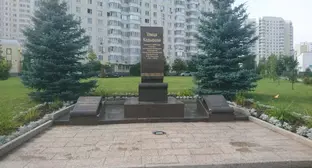26 January 2011, 23:00
Week in the Caucasus: review of main events of January 17-23
Tragedy in Kuschevskaya village continued by massacre in the Stavropol Territory; African swine fever attacks South of Russia; wave of earthquakes covers Southern Caucasus; European Parliament finds Abkhazia and South Ossetia to be occupied territories, - look these and other events in the review of the week of January 17-23, 2011, prepared by the "Caucasian Knot".
Stavropol: another massacre
On January 21 in Stavropol, in the garage of one of the private houses, eight bodies with gunshot wounds were found - five men and three women. As it became known later, the owner of the household and members of his family were assassinated. A boy of eight years and a newborn girl were the only survivors.
In the connection with the massacre in Stavropol, Alexander Bastrykin, Chairman of the Investigatory Committee of the Russian Federation, held an emergency meeting with heads of law enforcement agencies, where he gave the guidance on the direction of the investigation and specific investigatory actions. Criminologists have compiled identikits of alleged killers.
Initially, vengeance and theft were among the versions of the massacre in Stavropol. The transport militia of Stavropol initially detained six persons as suspects of the massacre; however, as it was announced later, they were not involved in the crime.
Nikolai Paltsev, Mayor of Stavropol, said, in his turn, that the so-called "authority" named "Khan" (the nickname of the owner of the house, where the massacre was committed) had been long hunted for by his rivals.
Later, investigators said that the main version of the incident was an armed assault on the owner of the household with the aim to rob large sums of money.
From the very beginning, many observers have drawn a parallel between the events in Stavropol and the November massacre in the Krasnodar Territory, calling the new tragedy to be "the second Kuschevka".
Swine fever attacks South of Russia
Several cases of the African swine fever were detected last week in many domestic animals in southern regions of Russia.
In the Tatsin District of the Rostov Region, in the Kryukov game husbandry, death of 53 boars was registered. By the conclusion of the regional veterinary lab, the reason was in the African swine fever (ASF). Currently, the region is under quarantine actions. Specialists are going to completely liquidate wild boars in the Tatsin and Sholokhov Districts. It was decided to run ASF prevention with the help of mobile veterinary posts.
In the end of last week, complete liquidation of the whole swine livestock was also launched at the Alexandrov farm of the Morozov District of the Rostov Region, where ASF was revealed in 55 dead pigs. The swine farm owned by a major Limited Liability Company (LLC) "Yug Rusi" raised 230 pigs; now, more than 80 have been slaughtered, and the process continues. The district commission for emergencies has announced the state of emergency.
Last week, the same state of emergency caused by detection of the ASF virus was introduced in the Staroanninskiy and Beryozovskiy rural settlements of the Novoanninskiy District of the Volgograd Region, where the regional veterinary laboratory gave positive ASF conclusion. At present, a complex of anti-epizootic measures is implemented there.
Also last week, over a third of all the pigs held by households of the village of Krasnogvardeiskoe, Stavropol Territory, were slaughtered because of the detected ASF virus.
Astrakhan: mass poisoning of schoolchildren
On January 19, many pupils of the school located in the village of Karagali, Astrakhan Region, got poisoned. The main version assumes that it happened to them at a school canteen. Twenty-five pupils were hospitalized on that very day; four of them are in grave condition. As of January 23, already 28 patients were reported.
The inspection conducted at the school revealed numerous violations of sanitary and epidemiological regulations.
More earthquakes in the Caucasus
On January 19, Southern Caucasus fixed five earthquakes - from 5.7 to 3.3 by Richter scale. The earthquake, the epicentre of which was in Georgia at the depth of 15 meters, was felt in South Ossetia, Abkhazia and North Ossetia. In Tskhinvali, the power of the earthquake was 3 points. There were no victims or destructions.
On the following day, January 20, six more aftershocks were registered in Georgia. Several houses and highways were damaged in Imereti.
On January 22, an earthquake of four points by Richter scale was registered in the village of Botlikh in Dagestan. Next morning, an earthquake again happened in Georgia. The epicentre was in the western part of the country. According to seismologists, the epicentre of the earthquake with a magnitude of 4.3 points was five kilometres off a resort village of Sairme.
The earthquake made no damage to houses and structures. According to specialists, this quake was an aftershock of the earthquake of 5.7 points that was registered on January 19 in the same area. It is predicted that similar aftershocks will continue here for the upcoming fortnight.
Georgia: refugees in the street
On January 20, the police began evicting refugees from places of their compact residence, namely, the former building of the Customs Department in Orkhevi and three blocks of the so-called campus in Bagebi. During the eviction clashes burst out between protesters and the police. Several persons were detained. On the same day, refugees held a rally in Tbilisi, where the organizers decided to bring all the evicted refugees to the square in front of the parliament and set up a tent camp there. Evictions continued on January 21; and today refugees are planning to hold another protest action.
Koba Subeliani, Minister of Georgia for Matters of Internally Displaced Persons, Refugees and Accommodation, said, in his turn, that the refugees evicted on January 20-21 will be able either to get housing in the countryside or monetary compensations. In particular, the authorities, assisted by foreign donors, suggest small loans to displaced families to start their small agricultural businesses.
European Parliament believes Abkhazia and South Ossetia are occupied
On January 20, the European Parliament approved its strategy in relation to the countries of the Black Sea basin. The document declares Abkhazia and South Ossetia to be occupied territories, where human rights are systematically violated.
Point 32 of the document adopted by the European Parliament "points out that human rights violations are a daily occurrence in occupied South Ossetia and Abkhazia" and calls "to respond actively" to such violations.




